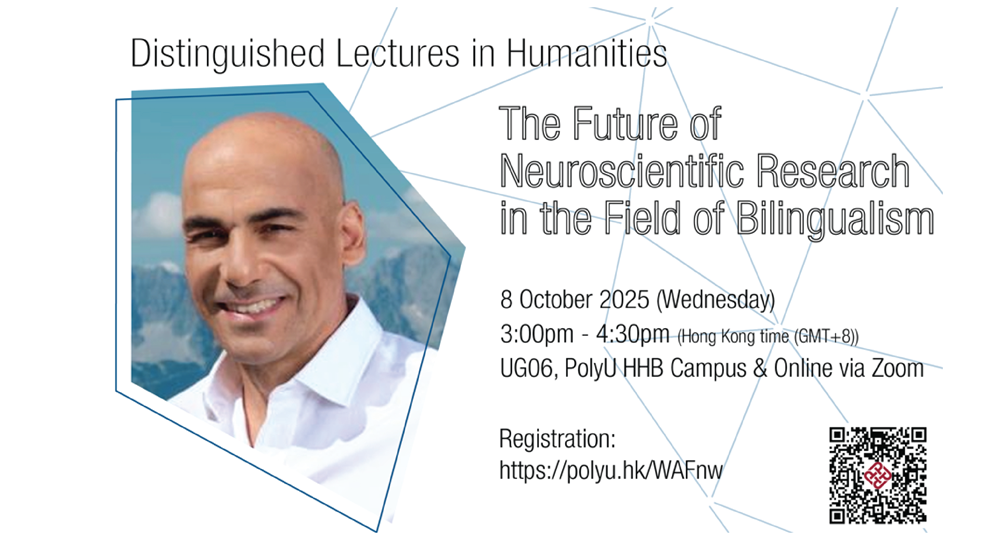Distinguished Lectures in Humanities: The Future of Neuroscientific Research in the Field of Bilingualism
Distinguished Lectures in Humanities

-
Date
08 Oct 2025
-
Organiser
Faculty of Humanities
-
Time
15:00 - 16:30
-
Venue
UG06, PolyU HHB Campus & Zoom
Remarks
The talk will be conducted in English.
Summary
Abstract
In the last two decades the contribution of neuroscience to bilingualism, in terms of discovering the neural architecture, has been enormous. Up-to-date we know how bi- and multilinguals store their languages, how and where they are represented in the human brain and how bilinguals control their languages in order to avoid unwanted language interferences during speech. Old myths that distinct languages are differently stored in the brain have been completed confuted. Neuroscientific studies have also highlighted neural differences between bilinguals and monolinguals for several cognitive functions, even for those circumstances where no behavioral differences exist. Neuroimaging studies have further shown different neural aging trajectories for bilinguals when compared to monolinguals underlining that the bilingual brain may be better protected against aging effects and cognitive decline.
During my presentation, I will provide a brief overview of the state of the art and then illustrate and discuss new research lines such as studying the foreign language effect, the effects of sleep and bilingualism on general cognition, the effects of linguistic distance on the bilingual brain and the importance of study the bilingual connectome. Lastly, we will discuss how to focus on individual differences in bilingualism research and heritage language speakers.
About the speaker
Jubin ABUTALEBI is a cognitive neurologist and Associate Professor of Neuropsychology at the University Vita-Salute San Raffaele (UniSR), as well as Full Professor II at UiT The Arctic University of Norway. He is also a leading researcher at the Higher School of Economics in Moscow. He is internationally known for his landmark research on the cerebral organization of bilingualism, particularly how the human brain acquires, accommodates, and controls multiple languages in order to become a proficient second language speaker. He currently serves as editor-in-chief of the journal Bilingualism: Language and Cognition (Cambridge University Press).
Born in Vienna and raised in Germany, he earned his MD with summa cum laude from the University of Brescia in 1998, specialized with summa cum laude in Neurology at the UniSR in 2003, and completed a PhD in Neurolinguistics at the University of Hong Kong in 2014. His clinical and research experience spans leading institutions, including the Department of Experimental Neurology at the Charité Hospital, the Humboldt University of Berlin, the University of Montreal, and the University of Hong Kong.
Prof. ABUTALEBI is a world-leading figure in the study of the relationship between the brain and language, and his research has been published in the main international neuropsychological, neuroimaging and neurosciences journals. He currently directs the Centre for Neurolinguistics and Psycholinguistics (CNPL) at the UniSR. The CNPL pursues interdisciplinary research on language, mind, and brain, utilizing cognitive neuroscience, experimental psychology, linguistics, and neuropsychology, along with advanced neuroimaging and neurostimulation techniques.




